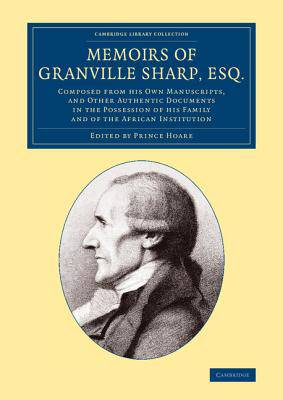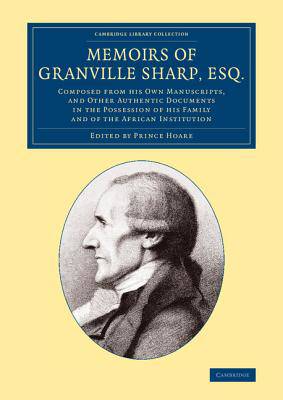
- Afhalen na 1 uur in een winkel met voorraad
- Gratis thuislevering in België vanaf € 30
- Ruim aanbod met 7 miljoen producten
- Afhalen na 1 uur in een winkel met voorraad
- Gratis thuislevering in België vanaf € 30
- Ruim aanbod met 7 miljoen producten
Zoeken
Memoirs of Granville Sharp, Esq.
Composed from his Own Manuscripts, and Other Authentic Documents in the Possession of his Family and of the African Institution
Granville Sharp
€ 127,45
+ 254 punten
Omschrijving
Self-educated in languages and the law, the author Granville Sharp (1735-1813) was a leading anti-slavery campaigner. Though many of his associates in the abolitionist movement were dissenters or freethinkers, he was an Anglican very much concerned with the fate of the church in America after the war of independence. His family consigned his archives to the painter, playwright and author Prince Hoare (1755-1834), who published this biography in 1820. Sharp is less well remembered than other British abolitionists such as Clarkson and Wilberforce, but it was his work which, in 1772, brought the landmark case of James Somerset before Lord Mansfield, who upheld Sharp's legal arguments: as a result, it was henceforth understood that any slave reaching the shores of England became free. Sharp's continuing work for abolition, and his many other charitable and scholarly activities, are detailed in this fascinating work, drawn directly from his own writings.
Specificaties
Betrokkenen
- Auteur(s):
- Uitgeverij:
Inhoud
- Aantal bladzijden:
- 594
- Taal:
- Engels
- Reeks:
Eigenschappen
- Productcode (EAN):
- 9781108075619
- Verschijningsdatum:
- 11/12/2014
- Uitvoering:
- Paperback
- Formaat:
- Trade paperback (VS)
- Afmetingen:
- 210 mm x 297 mm
- Gewicht:
- 1401 g

Alleen bij Standaard Boekhandel
+ 254 punten op je klantenkaart van Standaard Boekhandel
Beoordelingen
We publiceren alleen reviews die voldoen aan de voorwaarden voor reviews. Bekijk onze voorwaarden voor reviews.








